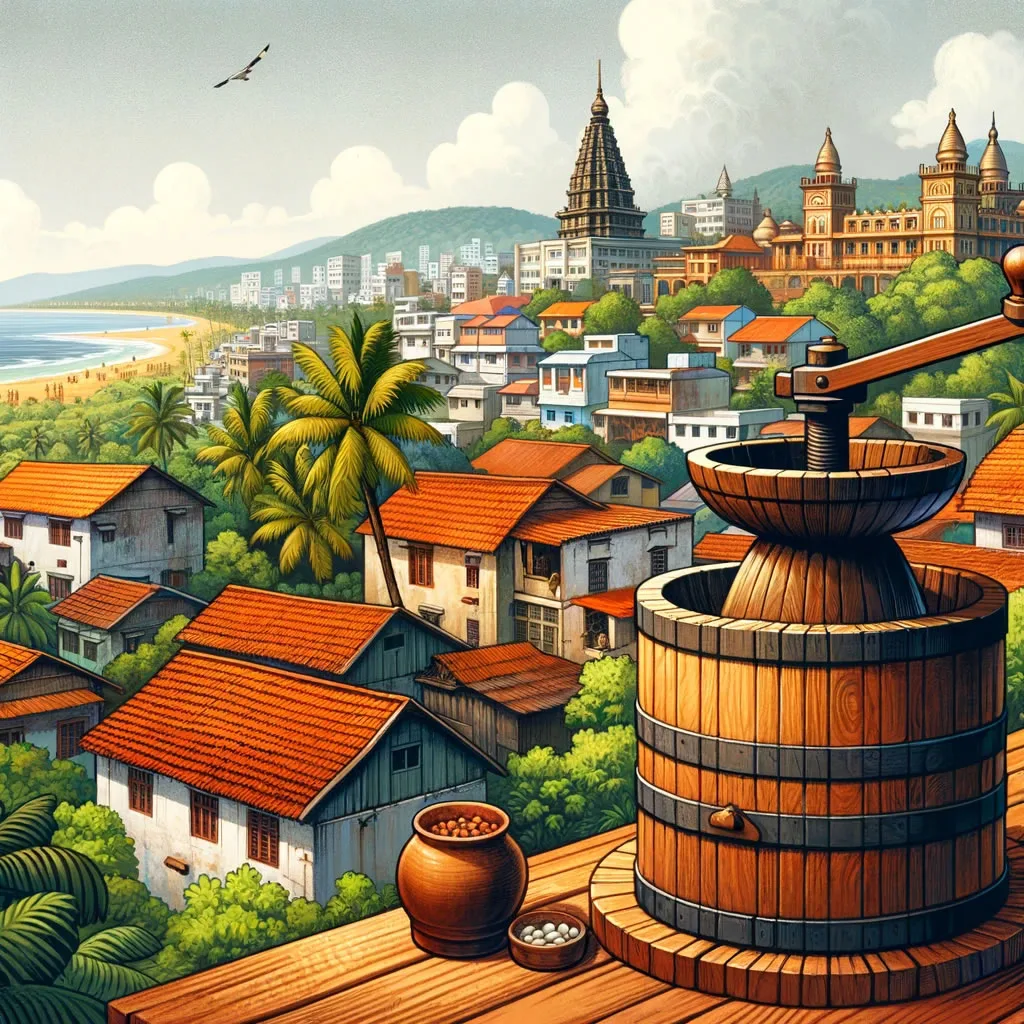
Nestled in the lush landscapes of the Karnataka coast, Mangalore is not just a city but a vibrant tapestry of cultural richness and culinary diversity. Known for its picturesque beaches and diverse traditions, it is a place where history and modernity coexist in harmony. One of the city’s most treasured practices is the art of wood pressed oil making, a skill that has been passed down through generations. This ancient method of oil extraction stands as a testament to Mangalore’s unwavering commitment to preserving its ancestral heritage. In every drop of wood pressed oil, there lies a story of traditional wisdom, carefully nurtured over centuries and still thriving in the city’s heart.
The process of extracting oil using wooden presses was deeply rooted in the local customs of Mangalore, interweaving the community’s lifestyle with a sense of timeless tradition. This method was not just about producing oil; it was a ritual that celebrated the bond between nature and mankind, a ritual that had been practiced with respect and dedication. It offers a unique blend of history, health, and taste, encapsulating the essence of what makes Mangalore truly special. The oils produced are not mere culinary ingredients; they are a legacy of Mangalore’s rich past, imbued with the flavors of the land and the spirit of its people. In Mangalore, wood pressed oil is more than a commodity; it’s a cultural emblem, representing a deep reverence for nature’s gifts and a passion for preserving a way of life that has defined this coastal city for generations.
Tracing back to generations, wood pressed oil making in Mangalore has been more than just a culinary practice; it’s a cherished ritual. This method, passed down through generations, symbolizes the city’s enduring bond with its past.
The traditional technique involves mara chekku or wooden mills, often made from vaagai wood. Unlike modern mechanical extractions, this method relies on slow, deliberate pressure, ensuring minimal heat and maximum nutrient retention.
Vaagai wood is renowned for its durability and natural preservative qualities. When used in oil presses, it plays a critical role in enhancing the oil’s flavor while maintaining its nutritional profile.
Wood pressed oils are celebrated for their health benefits. They are rich in antioxidants, essential vitamins, and maintain a healthy balance of fatty acids. This natural extraction method ensures that these benefits are fully preserved.
The cold pressed technique, a modern adaptation of wood pressing, has gained popularity for its ability to retain maximum nutritional value, making these oils a preferred choice for health-conscious consumers.
As the world moves towards more industrialized food production methods, the traditional art of wood pressed oil making in Mangalore stands as a reminder of the value of heritage. It’s a practice that not only offers health benefits but also connects us to our cultural roots. In preserving these methods, Mangalore not only champions a healthier lifestyle but also keeps alive a piece of its invaluable cultural legacy.
Are your restauranter, wholeseller or retailer looking to purchase wood pressed oil in bulk? we can cater to your requirement with best price in the market.
Southern Complex, Ground Floor, Opposite Presidency SkyCourt, Attavara, Mangalore – 575001
+91 866 066 8910
cococraftoil@gmail.com